The Four Myths of American Adulthood
The Big Idea: We’ve unreflectively adopted our culture’s bad metrics of adulthood.
Though it’s truest to say we have a big blind spot when it comes to adulthood, our culture does share some basic, hidden assumptions about how adulthood works.
These assumptions silently guide our parenting, schooling, and ministries. Unfortunately, they’re almost completely extra-biblical, recent, unnecessary, and often harmful. Material in nature and inappropriately exclusive, these adulthood “myths” have almost no reference to the “growing up in Christ” to which Christians are called. It’s about time we call them out and examine them in the light of the gospel.
The Four Myths
MYTH #1
You become an adult by turning eighteen.
MYTH #2
You become an adult by earning sex.
MYTH #3
You become an adult by leaving home.
MYTH #4
You become an adult by being economically independent.
These four myths work together to form our baseline understanding of adulthood. In order to be treated as an adult by everyone in our society, you have to achieve all four of them. If fewer than four of them apply to you, anyone with more that apply may treat you as less of an adult than they are, with less authority and relative dignity.
Why They’re Unnecessary
Though they function as our baseline assumptions, it’s important to realize that these four myths are culturally relative. Far from being universal, they didn’t even apply to American society just a couple of generations ago. They’re as arbitrary, in a certain way, as which clothes look “normal” to us right now.
Turning eighteen is unnecessary for adulthood, because there is a big difference between adulthood and legal adulthood.
Eighteen year-olds were being recognized as adults under English common law as early as the thirteenth century. But only recently have we come to believe that eighteen marks the beginning of social adulthood too. For some reason, we’ve come to think that legal adulthood is like the starting gun for social adulthood. But actually, it was designed more like a deadline for adulthood. “Surely by 18,” the thinking went, “they’ll be adults, and therefore should be liable under the law.”
By contrast, when you look at most cultures in most times and places, you’ll see youth being welcomed into adult society at younger ages.
Earning sex is unnecessary for adulthood, because honorable celibacy is one of the highest expressions of maturity in many, many cultures.
We tend to treat sexual activity as normal and normative, and the lack of sexual activity as immature, disadvantaged, or possibly unhealthy. This assumption, however, only shows how meager our culture’s available social roles and honors for single and celibate people are. You don’t have to look far or think hard to identify honorable celibate people in history whose maturity is unquestionable, from Jesus to Mother Teresa. But in our current cultural context, their state of celibacy would be looked down on and treated with suspicion.
This may sound like a secular assumption, and not a church assumption, but it affects our church life too. The difference is that, since most Christians believe they should reserve earned sexual activity to marriage, married people get treated more like adults than single people are in Christian circles. This inequality of dignity occurs despite clear biblical teaching about the honor of singleness. More on this below.
Leaving home is unnecessary for adulthood, because most cultures have been organized around small, tight-knit communities that support individuals through their whole lives.
Not many generations ago, leaving home was considered a sign of greater immaturity than staying home. It was evidence of a “prodigal.” Then, the normative expectation was that you would stay in the community that raised you and find a way to serve, often through a family business. We should not romanticize this situation; it was harmful for many people who grew up in bad communities, or whose gifts were unappreciated. But the fact that our assumptions about maturity were reversed barely two generations ago demonstrates their non-necessity. Still, our current assumptions along these lines are so strong that, unless they leave home first, it is incredibly difficult for individuals to be received as equal adults by the community of adults that raised them.
Becoming economically independent is unnecessary for adulthood, because wealth and poverty have very little necessary correlation to maturity, and because fortune is fickle.
Economic self-sufficiency has more to do with luck and labor than with adulthood. In fact, the Bible pretty clearly shows that wealthy people are in greater danger of spiritual childishness than non-wealthy people are, and it often highlights the poverty of Christian heroes as a mark of distinction, not dishonor.
Our assumption that economic independence within the American economic system is required for adulthood incorrectly places that system in a universal position (the position from which judgment of adulthood is possible), and it excuses our wicked impulses to honor the rich and shame the poor. More on this below.
In sum, none of the key qualities that we associate with adulthood today have any necessary connection to adulthood. In fact, as was implied in some sections above, they almost certainly harm people who should be able to claim adulthood and have their claim recognized, but who do not fit these assumptions. They’re mere myths — completely culturally relative — and evidence of our dangerously unreflective approach to adulthood.
How They’re Harmful
Treating culturally relative things like they are universal leads directly to the exclusion and dishonoring of people who don’t fit in. Consider all the people you know who are disadvantaged in the following key ways.
Tying turning eighteen to adulthood is harmful, because it deprives teens and young adults of opportunities for greater maturity and community contribution.
Because we stop ourselves from regarding people younger than eighteen as adults, we deprive many teens of a call to maturity that they would be ready and eager to answer. Merely because we condescendingly think they couldn’t or shouldn’t rise to that call, we deprive them of the opportunity to show us what sort of people they could be when the bar is raised for them.
The secondary result of this is that new eighteen year-olds are often ill equipped for their new responsibilities and freedoms. In this way, our assumptions have both deprived younger teens of a chance to grow that matches their potential, and they have made it more likely for them to fail after they turn eighteen too.
Tying earning sex to adulthood is harmful, because it subjects single people to a lifetime of being treated “less than.”
It is a vanishingly rare single adult in an American church today who will report that they are treated with as much respect as their married peers. They are unnecessarily excluded from forms of support and community that are given to married people in abundance. They are treated with suspicion in the context of leadership roles. They are, in various ways large and small, rendered less visible and treated as abnormal. This is a social injustice that the church should repent of, not just verbally, but through the reform of its structures of ministry to Christian adults.
Tying leaving home to adulthood is harmful, because it cuts new adults off from their communities and their cultural inheritances.
On one hand, we wait until 18 to call youth to adulthood, choosing in the meantime to help them “enjoy youth while they can” before they “enter the real world.” On the other, imprudently, we expect and encourage youth to leave their community when they turn 18 in pursuit of college or marriage or career.
Either of these behaviors, by themselves, could work out fine, though neither is ideal. But the two together effectively ensure that we unreflectively delegate the guidance of our youth during adulthood transitions to unknown others. Youth receive the call to adulthood from someone new, from outside the community that nurtured them—if they receive it at all. More likely than not, they learn what adulthood is and how to gain it only implicitly, from the movies and stories and friends they encounter. This is a profound loss and an invisible injury to everyone who was involved in the raising of a child.
Tying economic self-sufficiency to adulthood is harmful, because it leads to the invisibility and indignities of the poor.
Poverty is characterized by a lack of dignity, and our association of poverty with childishness or immaturity only compounds the pain of that reality. Far from being a clear sign of immaturity or personal failure, the conditions of poverty can produce characteristics of courage, endurance, patience, faith, hope, and loyalty with more reliability than the conditions of wealth can. And even if poverty has not produced those characteristics in an impoverished individual, the kind of community support they need and deserve will not be advanced by also asking them to prove, by default, that they deserve to be treated like the peers of other adults. If we are to take scripture seriously, we should rather lavish honor on the poor, while being suspicious of our inclinations to honor the rich.
Now What?
Because of the above, we should not be surprised when the transition to adulthood is also a departure from the tastes, habits, and beliefs of the communities of their childhood. Our question should be: How do we repair the disconnect and combat the myth, clearly offering youth the incomparable glory of Christian maturity?
We need not behave as we do. Though we probably can’t change the legal framework and hiring policies that, for now, make a departure from home around age 18 nearly necessary, we can reject the assumption that childhood extends until that departure. We can reject the assumption that adulthood is primarily marked by the acquisition of things, by economic stability, and by romance. We can reject our own pessimism about the beauty of Christian adulthood, and about teenagers’ ability to attain it.
But it won’t be enough to reject the current adulthood myth. We need to surpass it, building a clear and current mythos for entering Christian adulthood. Through our patterns of youth ministry, Christian education, and parenting, we need to turn from merely preserving Christian behaviors or permitting youthful play toward the riskier, more beautiful work of inviting youth into Christian adulthood. We need to show them what it is in all its glory, and give them a path to pursue it in the context of their home communities. In short, we need to turn from enforcing the mere duties of childhood, and make disciples.
Will we take risks to facilitate adulthood’s development in our youth while they are with us, unfolding the freedom and responsibility that such facilitation implies, or will we persist in leaving them to begin that free development only after they go?

